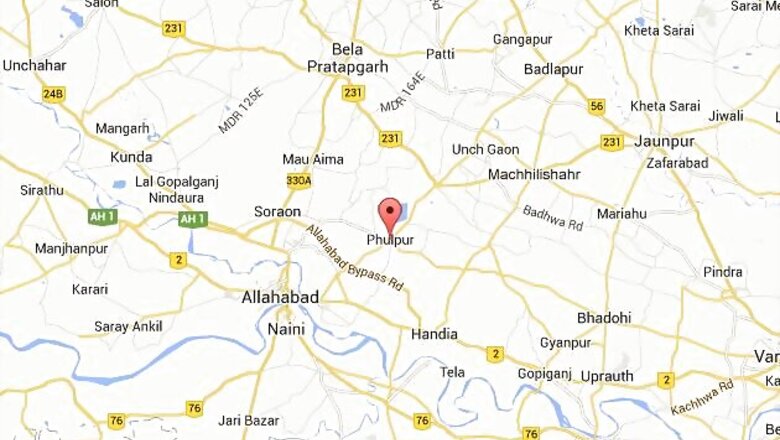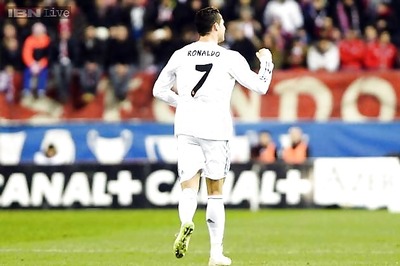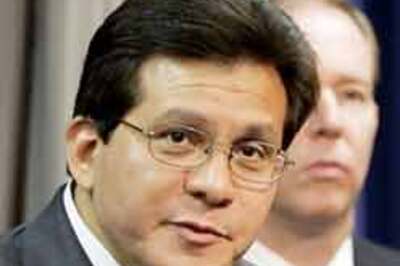
views
An engrossing four-cornered contest appears to be on the cards in Phulpur Lok Sabha constituency, which Congress seeks to reclaim after 25 years, BJP hopes to win for the first time, BSP wants to retain and Samajwadi Party aims at wresting back.
From nationwide fame earned on account of Jawaharlal Nehru fighting from here during his lifetime to the infamy caused by victory of mafia don-turned-politician Atiq Ahmed in the recent past, this Lok Sabha seat has seen it all.
The choice of candidates and the factors at play promise an exciting battle this time even though none of the contestants enjoys Nehru's stature or Ahmed's lack of it.
Congress has surprised all by fielding former Test cricketer Mohd Kaif from the seat, apparently with an eye on the sizeable Muslim electorate. The party also appears to be banking on Kaif's ability to connect with young urban voters whose proportion in the constituency has risen sharply after the latest delimitation.
A majority of the voters of the city have, after delimitation, become voters of Phulpur, which earlier comprised only the sprawling and populous trans-Ganga region of Allahabad district.
BJP has placed its trust in Keshav Prasad Maurya, an OBC leader who is a sitting MLA from Sirathu in the neighbouring district of Kaushambi. Maurya trumped many aspirants, including former national spokesman Siddharth Nath Singh, who had camped in the city for many months making efforts to build his base in the constituency.
The candidature of Maurya was announced rather late, mainly on account of the long-drawn affair that an electoral understanding with regional party Apna Dal turned out to be. Apna Dal enjoys a good following among the Kurmis and Patels, who are said to be the largest caste group in the constituency.
Significantly, in all the six Lok Sabha polls that took place between 1984 and 1999, the seat was won by Patel candidates.
In the last general elections, Apna Dal founder, the late Sone Lal Patel contested the seat and secured around 14 per cent of the votes despite the fact that he took a delayed decision to enter the fray and had to face the embarrassment of fighting as an Independent as his party's official nominee Pradeep Srivastava refused to pull out at the eleventh hour.
BJP has never won the seat. In the 2004 polls, when it had sought to arrive at the right caste arithmetic by fielding a Patel, it could secure no more than eight per cent of the votes. The party hopes to do better now by virtue of enthusiasm generated by Narendra Modi coupled with the strategic tie-up with Apna Dal which it hopes will bring in a share of Patel votes.
The most credible Patel face, however, has been fielded by the ruling Samajwadi Party. Its candidate Dharmraj Patel was elected from the seat in 1999.
Five years later, he was denied a party ticket, which was given to Atiq Ahmed. In the 2009 Lok Sabha polls, a disillusioned Patel fought on a Congress ticket. His candidature was credited, to a large extent, for the party's vote share reaching 12.25 per cent up from 1.5 per cent in 2004.
Meanwhile, BSP has chosen to give a second chance to its sitting Brahmin MP Kapil Muni Karwariya. The party is confident of its core vote base of Dalits remaining intact and is hopeful of getting a good chunk of Brahmin votes since no other major party has fielded a candidate from the influential community.
The party also hopes to win over a section of Muslims, who have traditionally been inclined towards Congress or Samajwadi Party. Arvind Kejriwal's Aam Aadmi Party too has thrown its hat in the ring. It has fielded former India Against Corruption volunteer Shimla Sree. However, the party may not find the going easy in the constituency, which is predominantly rural and where caste loyalties are known to determine voters' behaviour.
Jawaharlal Nehru
An engrossing four-cornered contest appears to be on the cards in Phulpur Lok Sabha constituency, which Congress seeks to reclaim after 25 years, BJP hopes to win for the first time, BSP wants to retain and Samajwadi Party aims at wresting back.
From nationwide fame earned on account of Jawaharlal Nehru fighting from here during his lifetime to the infamy caused by victory of mafia don-turned-politician Atiq Ahmed in the recent past, this Lok Sabha seat has seen it all.
The choice of candidates and the factors at play promise an exciting battle this time even though none of the contestants enjoys Nehru's stature or Ahmed's lack of it.
Congress has surprised all by fielding former Test cricketer Mohd Kaif from the seat, apparently with an eye on the sizeable Muslim electorate. The party also appears to be banking on Kaif's ability to connect with young urban voters whose proportion in the constituency has risen sharply after the latest delimitation.
A majority of the voters of the city have, after delimitation, become voters of Phulpur, which earlier comprised only the sprawling and populous trans-Ganga region of Allahabad district.
BJP has placed its trust in Keshav Prasad Maurya, an OBC leader who is a sitting MLA from Sirathu in the neighbouring district of Kaushambi. Maurya trumped many aspirants, including former national spokesman Siddharth Nath Singh, who had camped in the city for many months making efforts to build his base in the constituency.
The candidature of Maurya was announced rather late, mainly on account of the long-drawn affair that an electoral understanding with regional party Apna Dal turned out to be. Apna Dal enjoys a good following among the Kurmis and Patels, who are said to be the largest caste group in the constituency.
Significantly, in all the six Lok Sabha polls that took place between 1984 and 1999, the seat was won by Patel candidates.
In the last general elections, Apna Dal founder, the late Sone Lal Patel contested the seat and secured around 14 per cent of the votes despite the fact that he took a delayed decision to enter the fray and had to face the embarrassment of fighting as an Independent as his party's official nominee Pradeep Srivastava refused to pull out at the eleventh hour.
BJP has never won the seat. In the 2004 polls, when it had sought to arrive at the right caste arithmetic by fielding a Patel, it could secure no more than eight per cent of the votes. The party hopes to do better now by virtue of enthusiasm generated by Narendra Modi coupled with the strategic tie-up with Apna Dal which it hopes will bring in a share of Patel votes.
The most credible Patel face, however, has been fielded by the ruling Samajwadi Party. Its candidate Dharmraj Patel was elected from the seat in 1999.
Five years later, he was denied a party ticket, which was given to Atiq Ahmed. In the 2009 Lok Sabha polls, a disillusioned Patel fought on a Congress ticket. His candidature was credited, to a large extent, for the party's vote share reaching 12.25 per cent up from 1.5 per cent in 2004.
Meanwhile, BSP has chosen to give a second chance to its sitting Brahmin MP Kapil Muni Karwariya. The party is confident of its core vote base of Dalits remaining intact and is hopeful of getting a good chunk of Brahmin votes since no other major party has fielded a candidate from the influential community.
The party also hopes to win over a section of Muslims, who have traditionally been inclined towards Congress or Samajwadi Party. Arvind Kejriwal's Aam Aadmi Party too has thrown its hat in the ring. It has fielded former India Against Corruption volunteer Shimla Sree. However, the party may not find the going easy in the constituency, which is predominantly rural and where caste loyalties are known to determine voters' behaviour.



















Comments
0 comment